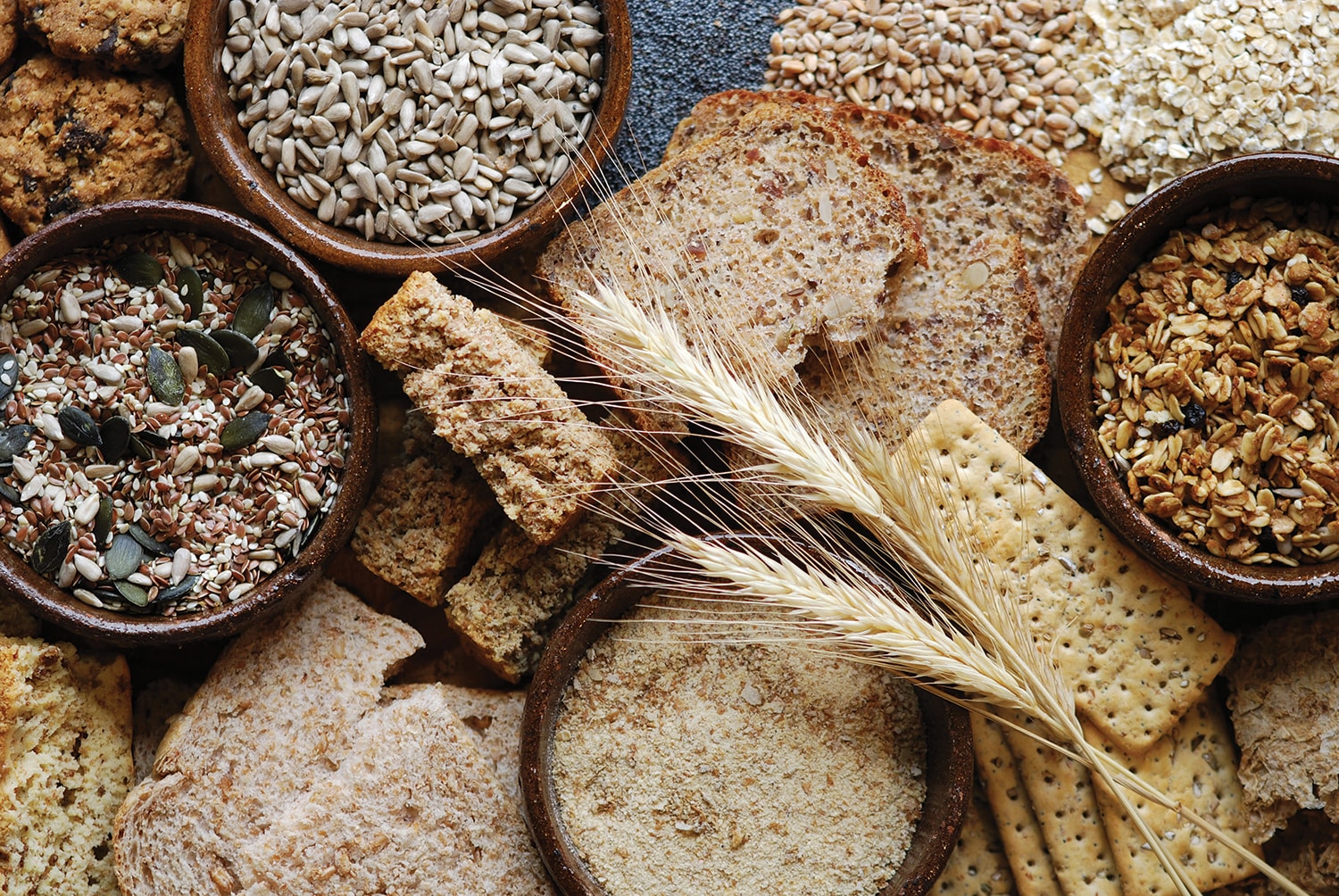At a time when many people are cutting back on carbohydrates, several recent studies suggest we should be adding more whole grains to our diet. Less than 10 percent of Americans eat the three or more daily servings of whole grains recommended by the Dietary Guidelines for Americans.
A large review study published in the June 14, 2016, issue of Circulation found that people who ate more than two servings of whole grains per day reduced their risk of dying from cancer, and that the risk decreased further as more whole grains were consumed. Those who ate the most whole grains, about four servings per day, had about a 20 percent lower risk of death from cancer and a 23 percent lower risk of death from cardiovascular disease than those who ate no whole grains.
A separate review study published online the same day in the BMJ linked an increase in whole grain consumption of three servings per day to a 15 percent reduction in cancer mortality.
“I still think three servings a day is a realistic goal to achieve,” says Qi Sun, an epidemiologist at the Harvard T.H. Chan School of Public Health in Boston, who led the Circulation study. “But at the same time, if people can eat more whole grains, it’s even better.”
In a third article, published in the June 2016 issue of Nutrition Reviews, most studies reviewed did not find an association between eating cereal fiber, whole grains or both and a reduction in cancer risk overall, says Nour Makarem, a nutritional epidemiologist at Columbia University Medical Center in New York City. Makarem worked on the study as a graduate student at New York University. Yet some of the studies did suggest a connection between whole grains and cereal fiber and a reduced risk of gastro-intestinal cancer, and possibly head, neck and renal cell cancer.
While more work is needed to understand whole grains’ effect on cancer risk, they likely help prevent weight gain, diabetes and heart disease, Makaram says. “We also know that obesity, diabetes and cardiovascular disease are in turn risk factors for cancer.”
Cancer Today magazine is free to cancer patients, survivors and caregivers who live in the U.S. Subscribe here to receive four issues per year.





